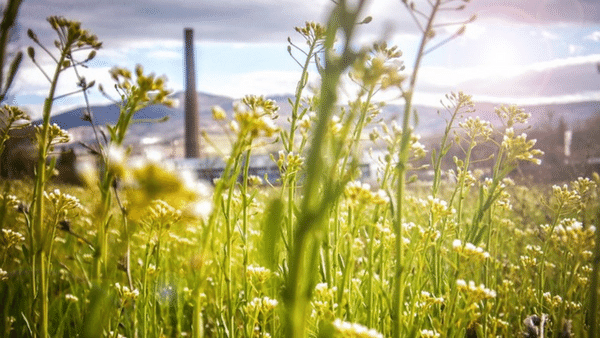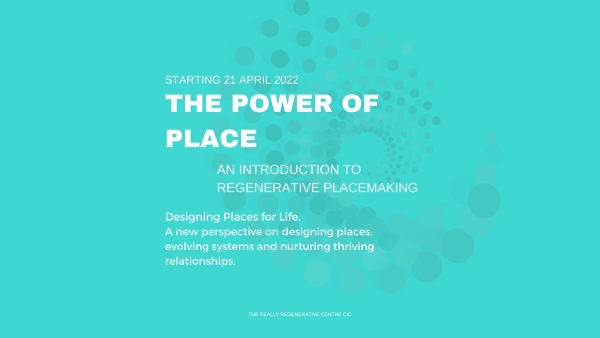- 56% of 2019 Conservative voters have seen climate damage in the UK
- “British bounce” effect means Tory voters are MORE in favour of climate action than Labour voters on some measures
- But with just 46% thinking COP26 will affect ordinary Brits, the RSA calls on the PM to ensure COP plans aid levelling-up
The UK government should consider a new ‘carbon dividend’ to help sell the benefits of climate action to red wall areas – with as few as 46% of Brits thinking currently thinking COP will help ordinary Brits – a new report says.
Blue In Green by the RSA (royal society for arts, manufactures and commerce), published ahead of the Conservative party conference, explores the attitudes of British citizens to past, present and future damage caused by climate change.
The Savanta poll of 3,000 UK adults, with a weighted sample of 1,000 Tory voters, finds 26% have “definitely” or “likely” seen their home or garden damaged by climate change
Meanwhile 65% say they have seen the effects of climate damage globally and 56% say they have seen damage in the UK.
And Conservative voters are even more supportive of action on climate on some measures than Labour voters, the report finds.
It identifies a “British bounce” in which Tory voters become MORE in favour of action than Labour voters, when policy issues are framed at the UK level rather than the global levels.
The RSA says the UK government should use this “British bounce” to make the case for the UK leading the world on climate action.
Ahead of the COP26 conference, the report finds 74% of Tory voters think the UK should play a leading role in the conference; 67% think the conference will be a big test of the PM’s leadership; and 37% think it will affect how they vote at the next election.
But just 46% say that COP26 will have an impact on the lives ordinary Brits.
The RSA calls for the government to make the case for climate action, both at home and abroad:
- A Canada-style ‘carbon dividend’, which would place a tax on carbon to be redistributed across the population at large. This policy has been pioneered in Canada and Switzerland, where ‘carbon dividends’ are provided across the population in a similar manner to a basic income.
- Community assemblies. The RSA’s findings suggest that the British public do not feel empowered to combat climate change in their local areas. Participatory, democratic bodies could help communities make an impact.
- A green transition fund, to help level-up left behind areas and provide economic as well as environmental transformation. The RSA found that there is widespread support for creating new jobs in environmentally-friendly sectors, and investment in new infrastructure, skills training and jobs could aid efforts to tackle climate change within the government’s ‘levelling up’ agenda.
- For local authorities to prepare compulsory, street-by-street plans for working toward net zero in their areas.
Anthony Painter, chief research and impact officer at the RSA, said:
“We cannot waste this moment.
“Across the board, there is decisive support for action in climate change by Government, business and individuals. This includes the 2019 Tory voter coalition, with more than one in four having already been directly impacted in their own home or garden.
“There is no evidence that the red wall opposes action in principle, but in practice, we need to ensure that tackling the climate emergency involves levelling-up on economic security – for instance, through a carbon dividend paid directly to households."
Ends
Methodology:
Savanta ComRes interviewed a nationally representative sample of 2,087 people, with a further boost of 1,000 Conservative voters, conducted online between 3rd and the 5th of September 2021. Savanta ComRes is a member of the British Polling Council and abides by its rules.
Contact:
Ash Singleton, ash.singleton@rsa.org.uk, 07799 737 970.
Notes
About COP26 and the RSA
The RSA is committed to resolving the challenges of our time. In order to support that ambition, the RSA has launched a new core programme of work – Regenerative Futures, which looks to explore how collectively we can create a future where people and planet flourish hand-in-hand for the long-term. To find out more visit www.thersa.org/regenerative-futures
About the RSA
The RSA (royal society for arts, manufactures and commerce) is an independent charity, committed to a future that works for everyone. A future where we can all participate in its creation.
The RSA has been at the forefront of significant social impact for over 260 years. Our proven change process, rigorous research, innovative ideas platform and diverse global community of over 30,000 problem solvers, deliver solutions for lasting change.
Legally, the Royal Society for the Encouragement of Arts, Manufactures and Commerce (‘RSA’) is a Royal Charter Company and registered charity in England and Wales (charity number 212424) and in Scotland (charity number SC037784).
Related articles
-
Blue in green: Approaches to tackling the climate crisis
Policy briefing
Will Grimond Adarsh Ramchurn
Ahead of COP26, we look at public attitudes to past, present and future climate change damage, with a focus on the views of Conservative voters.
-
Regenerative organisations: the time is now, the place is here
Blog
Joanna Choukeir
Regenerative organisations are vital to our regenerative future. The time is now for the RSA to emerge as such an institution.
-
What is Regenerative Place-making?
Fellowship news
Jenny Andersson
Creative strategist and regenerative practitioner, Jenny Andersson, explores regenerative place-making as coming home to place.


